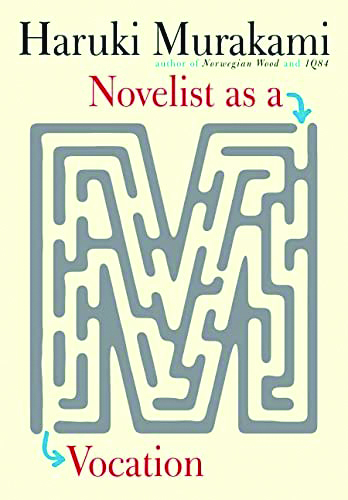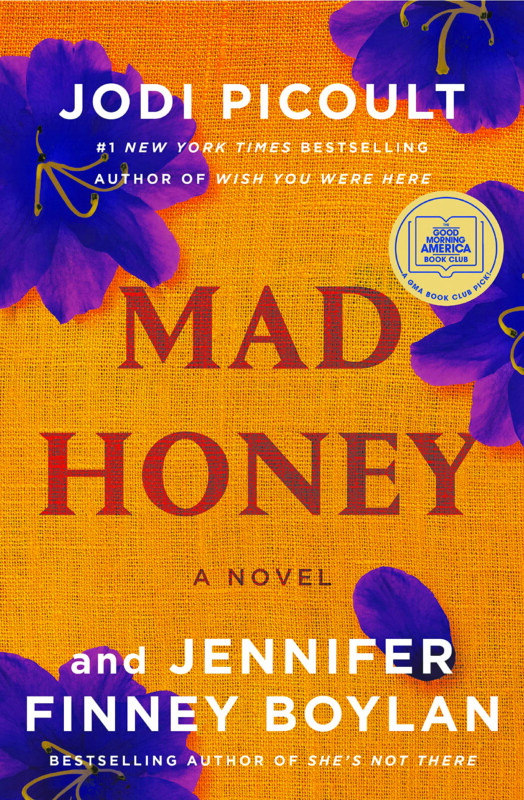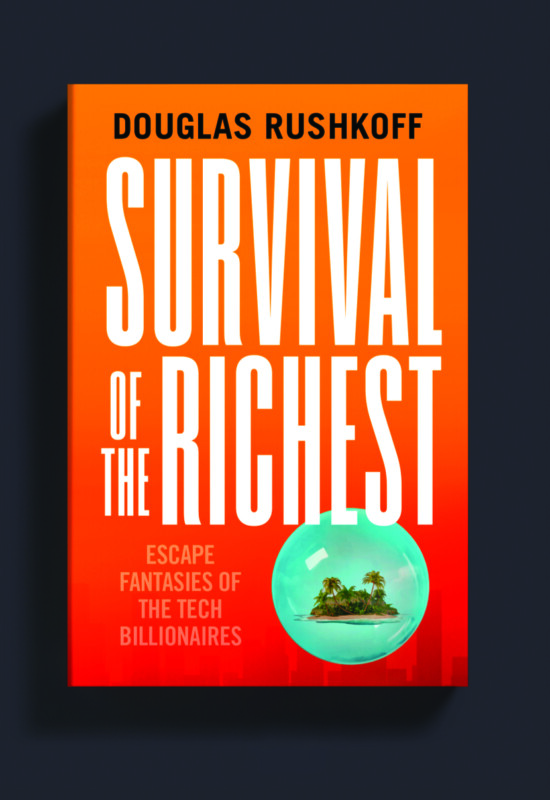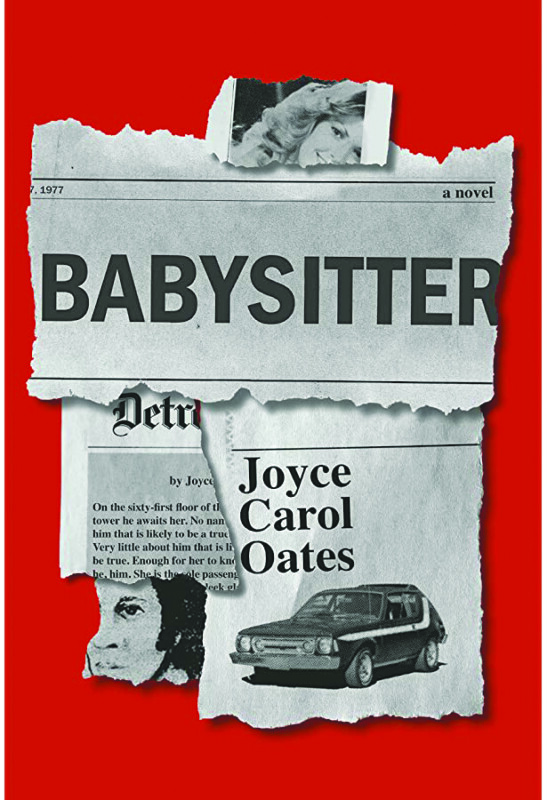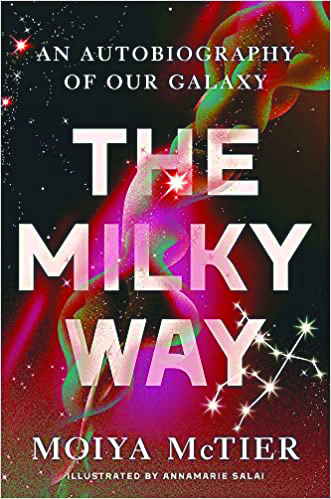Novelist as a Vocation, Haruki Murakami; translated by Philip Gabriel and Ted Goossen (Knopf, 224 pages)
The career of Haruki Murakami is one of the more mystifying legends in the literary world. He’s told the story many times: how, sitting in the stands at a baseball game, he suddenly had the thought that he could write a novel, despite not having written anything much more substantive than college papers. It was, as he calls it, an epiphany. The next day, he bought a fountain pen and paper and started writing a novel at his kitchen table after he got home from work in the evening. It took six months.
That was 35 years and 25 books ago.
Everyone now trying to do the same thing (or something similar) during November for NaNoWriMo (National Novel Writing Month) should know, however, that even Murakami didn’t think much of that first book, Hear the Wind Sing, of which he now writes, “What I had written seemed to fulfill the formal requirements of a novel” yet “was rather boring, and as a whole, left me cold.”
But possessed of the idea that writing a novel was his destiny, Murakami did not stay discouraged even though he wasn’t satisfied with the first draft. As he tells in his new memoir Novelist as a Vocation, he swapped the pen and paper for a typewriter and started again in English instead of his native Japanese. That limited the vocabulary available to him and forced him to write more precisely — to create, as he says, “a creative rhythm distinctly my own.”
Ultimately he rewrote the entire novel in this style and found that writing “filled the spiritual void that had loomed with the approach of my thirtieth birthday.” A year later, the book was short-listed for a prize for new writers, which he won. And Murakami Inc. was off and running, despite the disdain of some of Japan’s literary elites, one of whom has called him a “con man.”
Novelist as a Vocation recounts many of the stories that Murakami has already told, including how he got started and why he became a long-distance runner who runs every day (and a marathon every year). It also explains, in some ways, the Murakami phenomenon — why he has enjoyed enduring popular success despite a writing style that is often plain-spoken. Along the way, he offers advice to aspiring novelists, although he doesn’t seem to have a high opinion of them as a species, writing, “The way I see it, people with brilliant minds are not particularly well suited to writing novels.”
He also says, “There are exceptions, of course, but from what I have seen, most novelists aren’t what one would call amiable and fair-minded. Neither are they what would normally be considered good role models: their dispositions tend to be idiosyncratic and their lifestyles and general behavior frankly odd.” He tells the story of the 1912 meeting of Marcel Proust and James Joyce, who barely spoke to each other at a dinner party in Paris. “Writers are basically an egoistic breed, proud and highly competitive. Put two of them in the same room and the results, more likely than not, will be a disappointment.” A certain arrogance also helps novelists who succeed, he suggests.
What novelists are, besides dogged, is accommodating. They are tolerant of other novelists because, as Murakami puts it, there’s always more room in the ring. Many people write one or two novels; few do what he does: churn them out consistently. Not that even Murakami makes his sole living from writing novels — he also has done English-to-Japanese translations for 30 years.
I have always been something of a Murakami skeptic. Even his celebrated memoir What I Talk About When I Talk About Running, which I’ve read twice, seems flat to me, its sentences as matter-of-fact as a grocery list. So it was interesting to read that the author himself does not pay heed to too much of his press. “… I am, when all is said and done, a very ordinary person,” he writes. “ … Not the type to stand out when I stroll around town, the type who’s always shown to the worst table at restaurants. I doubt that if I didn’t write novels anyone would ever have noticed me.”
Also, he writes of being removed from the literary elites, having failed to win a couple of other prizes that he was shortlisted for early in his career. This has made him question the value of any prize, “from the Oscars to the Nobel.” The most important thing to have is good readers, not the acclaim of one’s peers, he says. (It’s worth noting, though, that Murakami also acknowledges that his career as a novelist might have fizzled if he hadn’t won the Gunzo Prize for his first effort.)
In short essays about his life and the craft, he goes on to muse about the importance of originality (and the difficulty of having an original style be accepted, whether in writing, painting or music); the mechanics of writing (he doesn’t work on novels unless “the desire to write is overwhelming” and instead does more mundane tasks, like translation, until that occurs); and why a scene from the movie E.T. is an apt metaphor for novelists who don’t have a lot of life experience. (Short version, you have to assemble a transmitter with an odd assortment of junk stored in the garage.)
Murakami estimates that 5 percent “of all people are active readers of literature” but those 5 percent are ardent, he says. “As long as one in twenty is like us, I refuse to get overly worried about the future of the novel and the written word.”
Perhaps the most fascinating line in Novelist as a Vocation is this: “I don’t make promises, so I don’t have deadlines. As a result, writer’s block and I are strangers to each other.” So many writers convince themselves that they need deadlines to motivate them to work, but Murakami suggests that creativity flows best without this pressure. He also doesn’t seem to put a lot of pressure on himself as far as output goes, writing only about 1,600 words a day when he’s working on a novel, with a hard stop after 10 pages, even if he wants to write more.
Interestingly, this memoir was released in Japan in 2015 and took seven years and two translators to make it to the U.S., just in time to help NaNoWriMo participants who need a jolt of adrenaline to power through. It serves that purpose well, and is also a surprisingly pleasurable read for anyone trying to understand the magic of Murakami more broadly. B+

